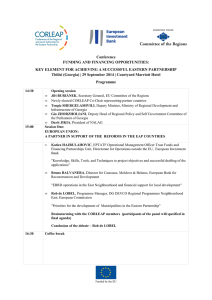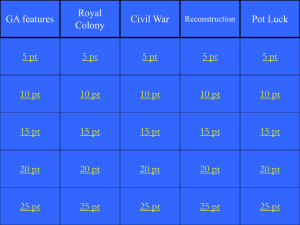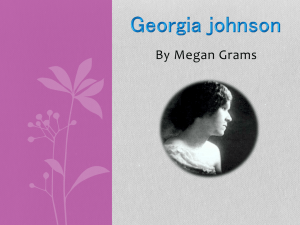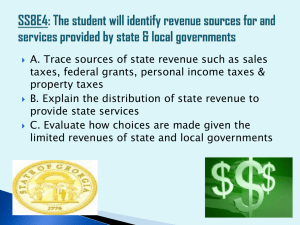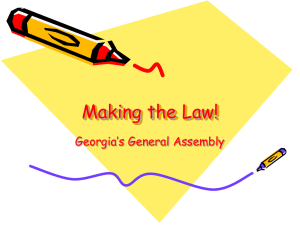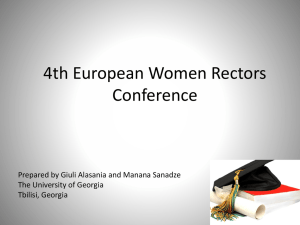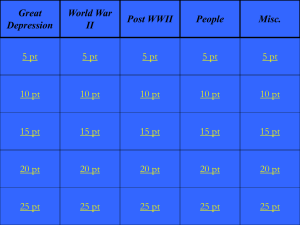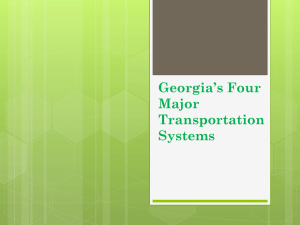Women`s role in peacebuilding
advertisement
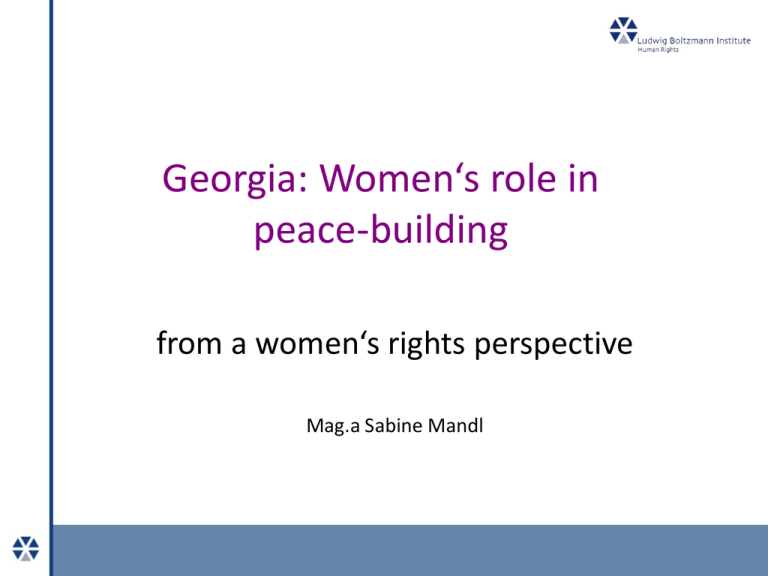
Georgia: Women‘s role in peace-building from a women‘s rights perspective Mag.a Sabine Mandl Women’s rights in Georgia International level: •UN-Convention on the Elimination of All Forms of Discrimination against Women, 1979 •Beijing Declaration and Platform for Action, 1995 •Millenium Development Goals and Millenium +5 Summit Declaration •UN Security Council Resolution 1325 and following 2 Women’s rights in Georgia National level: •National Action Plan on the implementation of UNSCR 1325 in Georgia 2012-2015 (2011) •National Action Plan on Gender Equality 2011-2012 (2011) •National Action Plan for combating domestic violence and measures to protect victims of domestic violence 2011-2012 (2011) •Law against trafficking (2006) •State concept of gender equality (2006) 3 Women’s participation in peace-building in Georgia Formal level: low participation, no peace delegation has more than one female representative, the Geneva Talks – two women are involved Informal level: women’s organisations are very active in peace-building and democratization processes (political participation, economic security, domestic violence, women’s rights, etc.) 4 Women’s participation in peace-building in Georgia Examples of projects: “Strenghtening women’s capacity in peacebuilding in South Caucasus” (Care Austria, BIM, local NGO partners) “Women for Equality, Peace and Development” (Taso Foundation, Women’s Information Center, Government of Norway, UNWomen) 5 Participation of women in politics: low level of participation of women in politics parliament: 6% women (new election code for parliamentary elections 2012 – incentives to include women) executive level: 5 female ministers out of 20 local level: no femal mayor 6 Women’s involvement into the labour market: strong horizontal and vertical segregation women are predominant in low paid sectors women are less likely to occupy top positions < 10% gender-pay-gap: women earn 49% compared to men labour migration > often men are working abroad poverty > female headed households are more affected Conclusions: In sum, Georgia provides widely legislative as well as enforcement measures for achieving gender equality and promoting women‘s rights but there is still an imbalance between legal norms and real opportunities for women to enjoy their rights in the Georgian society. 8 Conclusions: Some possible reasons: •no real political commitment •lack of financial and human resources •lack of effective instruments and mechanisms •traditional gender roles and stereotypes impede women to participate equally in public life (multiple burdens due to family responsibilities) 9 Have always in mind, that…. Gender equality and social justice are significant preconditions for sustainable peace 10

